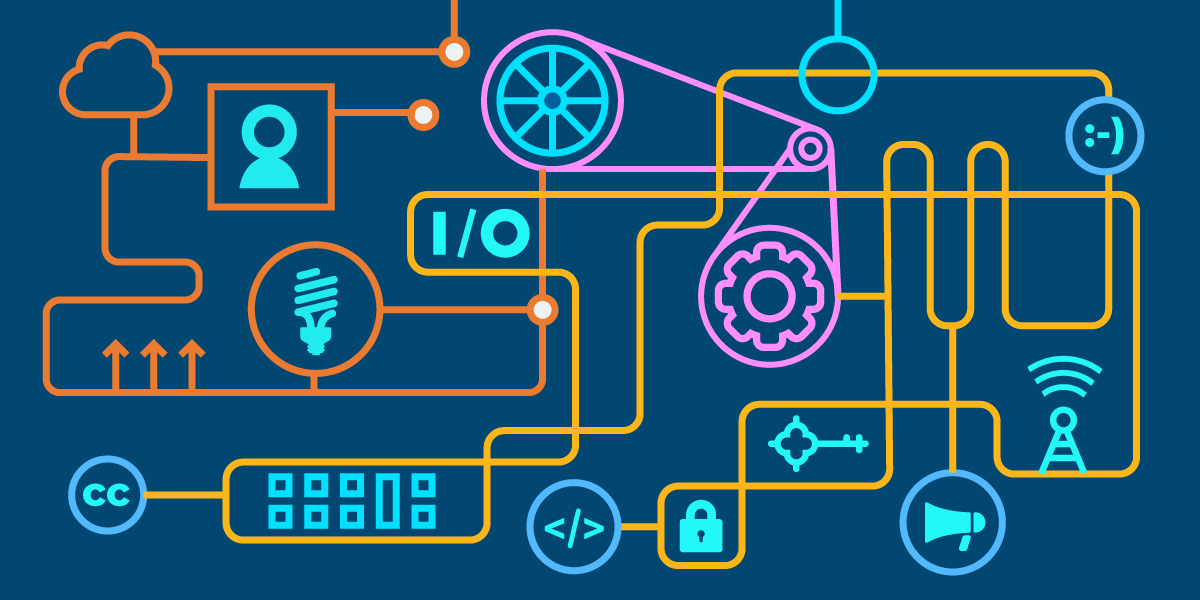
EFF Legislative Intern Suzi Ragheb wrote this blog post
Antitrust has not had its moment since the 1911 breakup of Standard Oil. But this past year, policymakers and government leaders around the globe have been taking a hard look at the technology markets. ‘Break up Big Tech’ is the newest antitrust catchphrase. On both sides of the Atlantic, policies have been introduced to foster digital competition.
Congress has introduced several competition and anti-trust bills, including a bipartisan package that passed out of committee. The Biden administration has nominated antitrust advocates to key positions: Lina Khan as chair of the Federal Trade Commission, Jonathan Kanter as the Assistant Attorney General for Antitrust at the Department of Justice, and Tim Wu at the National Economic Council. And across the Atlantic, the European Commission is marking up two key pieces of legislation, the Digital Markets Act and the Digital Services Act, that would create new rules for digital services and enhanced competition in the technology sector.
Early this summer and on his first international travel trip, President Biden headed to Brussels to talk about creating a new U.S.- EU Tech and Trade Council (TTC) and a Joint Technology Competition Policy Dialogue (JTCPD). There have been few details aside from the initial press releases on what policy approaches would be considered. However, it is a clear sign that there is a transatlantic appetite for tackling competition in the technology space. But what would an international competition policy look like?
International Interoperability and Data Portability Standards
At EFF, we have long advocated for interoperability and data portability as the answers to outsized market power. We believe that creating open standards and allowing users to move their data around to different platforms shifts the market power away from companies and into the hands of consumers. Pursuing this at an international level would be a seismic power shift and would boost innovation and competition.
Having open, interoperable standards between international platforms would allow users to easily transfer their information to the platform that best suits their needs. It would mean that platforms would compete not on the size of their networks, but the quality of their services. When platforms take advantage of network effects, it’s not a competition of offering the best functions, it’s a competition of who can collect the most personal data. The JTCPD would be remiss if they did not address platform and service interoperability, not just ancillary services, as a key part of digital competition.
In an interoperable data world, if you don’t like Facebook’s functions, you would be able to take your data to another platform, one with better services, and you would be able to connect with individuals across platforms.
Given the global nature of the internet, creating international standards would be less burdensome for tech companies, as they wouldn’t have to navigate a patchwork of differing standards. And despite pushback from the platforms, this is not an impossible feat. In fact, interoperability is a cornerstone of the internet. Consider that after Facebook purchased Instagram, the company added chat interoperability between the two platforms, and it plans to make WhatsApp interoperable with both platforms. If we had interoperability standards before the companies merged, the market would have looked and acted differently.
International Antitrust Is Incomplete Without Privacy
Privacy is a fundamental human right recognized by the UN and it must be a part of any international agreement on digital competition. Users today feel hopeless when it comes to their right to online privacy. While interoperability could address privacy concerns by allowing users to self-determine their platform of choice as well as give privacy-conscious platforms the ability to compete on a level playing field with big platforms, there is still a need to establish international privacy standards. Setting a minimum privacy standard pushes companies away from the personal-data-for-profit model that has become inimical to tech monopolies.
In the EU, data privacy standards have been established by the GDPR in 2016, codifying it as a fundamental right with high data protection standards across the EU. The U.S. significantly lags on developing federal privacy standards, despite bipartisan support. Privacy is also a national security concern, as it endangers the welfare of its citizens. A recent report commissioned by the Department of Defense’s Cyberspace Solarium calls on Congress to create national privacy standards as baseline protection against cyberattacks. Setting international privacy standards greatly benefits tech companies. It reduces compliance costs and confusion. And it gives a fair competitive chance to all tech companies, regardless of size.
The Promise of a Truly Competitive Digital Economy Lies in an International Agreement
Otherwise, we create a fractured world for a global internet, rampant with confusion and unequal protection under the law. Under an international agreement, interoperable and portable data standards would be adopted by the industry, leveling the field for both old and new firms. Interoperability will expand opportunities for start-ups to build new tech that works in existing dominant systems. International privacy standards and data minimization enshrines privacy as a human right and pushes the digital market away from the model that relies on personal data exploitation. Creating an international agreement sets up consumers for broader data protections and companies for expanded market access. And a U.S.-EU agreement on tech competition would set the tone for the rest of the globe.
* This article was originally published here
HELP STOP THE SPREAD OF FAKE NEWS!
SHARE our articles and like our Facebook page and follow us on Twitter!





0 Comments